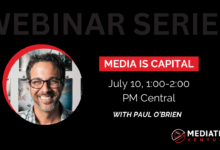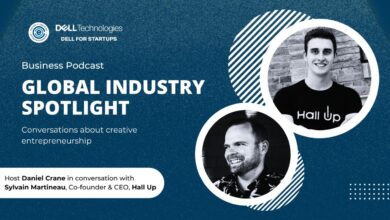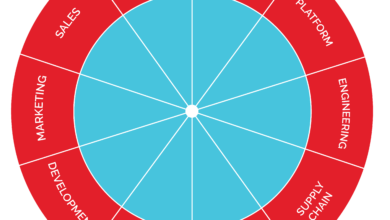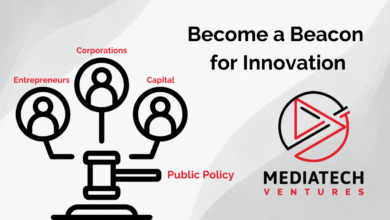The Startup Advice that Matters, which you Rarely Hear

When 90% of startups fail, while you’re fixated on getting your MVP done, selling something, or raising capital, the advice that hopefully provokes you to think differently, is that you should venture not to succeed but to not fail. Eliminate the issues that the startup industry has well researched and confirmed result in failure.
Makes sense, does it not? I hope it does. Let me say it more clearly: YOU ARE GOING TO FAIL.
Therefore, are you going to work on trying to be successful or are you going to take a look at what results in failing so that you can eliminate those issues and give yourself a fighting chance?
Here are 7 Facts that Correlate with Success as a Startup Founder
1. The personalities, skills, and experience of your cofounders, matter
A recent study conducted by researchers from the Oxford Internet Institute, University of Oxford, University of Technology Sydney, and the University of Melbourne examined data from over 21,000 startup founders, identifying six key personality types associated with success. The research indicates that the collective personalities of a startup’s founding team significantly influence the venture’s outcome.
While it’s well-known that many startup failures stem from team-related issues like poor execution and misaligned expectations, society continues to debate whether entrepreneurial traits can be taught (I don’t believe that; they’re innate personality traits that contrary to the hope that entrepreneurial traits can be taught, are in fact beaten out of people by structured education, a culture of professional expectations, and reward for knowledge). Books emphasize Grit, Tenacity, Purpose, Passion, and Mission, yet many founders remain fixated on owning a business or making money, often overlooking the core attributes needed for success.
Personality tests such as Myers-Briggs or DISC help identify capable founders. It’s well established that founders who crave variety and novelty, show reduced modesty, are open to adventure, and possess heightened energy levels are more likely to succeed. Published in Nature Scientific Reports, the study asserts that successful founders exhibit traits deviating from the norm. These six personality types—Fighters, Operators, Accomplishers, Leaders, Engineers, and Developers (FOALED)—are more predictive of success than conventional factors like industry affiliation or founder’s age.
Lead author and adjunct professor at the University of New South Wales, Paul X. McCarthy, highlighted that personality traits significantly impact startup success. Their algorithm distinguished successful founders with 82.5% accuracy using Crunchbase data. The paper concludes that the more a startup team exhibits these traits, the greater the likelihood of success.
Interestingly, the research suggests that a founding team is more likely to succeed if it includes individuals with these traits, even if not all founders possess them. Oxford researcher Fabian Stephany noted, “Firms with three or more founders are more than twice as likely to succeed than solo-founded start-ups.” This supports the idea that diversity in personality is critical, leading to the “Ensemble Theory of Success,” which emphasizes the importance of a diverse mix of founder types for significantly higher success rates.
For early-stage founders, the priority should be assembling a team with the right mix of personality traits—those who are Fighters, Operators, Accomplishers, Leaders, Engineers, and Developers—ensuring a higher probability of success.
If that’s not you, that’s fine, find the co-founders who are. Harsh reality? Stop thinking you can because you want to; the bottom line is that you can because you are… or you’re not.
2. Don’t be the boss, serve your team
It’s a subtle shift in language from CEO / Boss / Manager to Founder and Leader, but it’s a meaningful one. A good leader’s ultimate motivation should be to serve, not to lead. For startup founders, this approach can be particularly impactful. When founders focus on serving their team and stakeholders, they foster an environment of collaboration and empowerment. Instead of striving to be the central decision-maker, they support and elevate those around them. This often leads to better outcomes for the business as a whole.
Research supports this perspective. Jim Collins, in his book Good to Great, emphasizes that the most successful companies are led by what he terms ‘Level 5 Leaders.’ These leaders are characterized by a blend of personal humility and professional will, prioritizing the success of their company and team over personal recognition. Collins notes, ‘Level 5 leaders channel their ego needs away from themselves and into the larger goal of building a great company.’
Similarly, Simon Sinek, a renowned leadership expert, argues in his book Leaders Eat Last that the best leaders are those who put the well-being of their team before their own. Sinek explains, ‘The leaders who get the most out of their people are the leaders who care most about their people.’ This servant leadership approach fosters loyalty, innovation, and high performance within teams.
Moreover, research from the Greenleaf Center for Servant Leadership highlights that organizations practicing servant leadership tend to have higher employee satisfaction and engagement, leading to better overall performance and sustainability .
Startup founders who adopt this servant leadership mindset often find that they don’t need to assert their authority loudly. By serving their team and creating a supportive environment, they naturally emerge as respected leaders. This subtle yet powerful shift from leading to serving can make all the difference in driving a startup’s success.”
3. Nobody cares. You’re not getting anywhere until you change that.
This comes to my mind from what I’ve started doing to push harder on founders practicing their pitch with us, “I don’t care.” Stop, I don’t care. Try again, I don’t care.
Similar to the psychology of imposter syndrome, it’s crucial for startup founders to understand that most people are primarily consumed with their own lives and concerns. They’re not inherently interested in you, your work, or your product any more than the next post in their social media feed. Unless it’s your mom, people are generally indifferent towards you at best.
This indifference can be a fun and exciting challenge for startup founders, especially those involved in content creation or marketing. To succeed, you must make people care. Seth Godin, a renowned marketing expert, often emphasizes the importance of standing out and being remarkable. In his book Purple Cow, he argues that in a world full of noise, only the truly remarkable get noticed: ‘The key to success is to find a way to stand out—to be the purple cow in a field of monochrome Holsteins.’
Gary Vaynerchuk, another thought leader in entrepreneurship and marketing, echoes this sentiment. He insists that capturing attention and creating a genuine connection with your audience is paramount. Vaynerchuk states, ‘Attention is the asset. Understanding where the consumer’s attention is, and building content that is native to that attention, is the key to success’
Research supports this approach. A study by Microsoft found that the average human attention span has decreased to just eight seconds, highlighting the need for compelling and engaging content to capture and retain audience interest. This means that founders must be creative and persistent in their efforts to make their startups stand out.
Therefore, accept the challenge. Embrace the reality that you need to actively make people care. Continuously put yourself and your message out there, refine your approach, and strive to connect on a deeper level with your audience. This relentless pursuit of engagement and connection can ultimately lead to the success of your startup.
4. Bury your Ego and Avoid Drama in the Team
In line with the idea that no one cares as much as you might think, startup founders should strive to be humble, bury their ego, and avoid drama. The less seriously you take yourself and your ideas, the less easily offended you become, fostering a more collaborative environment conducive to growth. In remote work, where written words can sting more than intended, maintaining humility and a drama-free attitude is especially crucial.
Jim Collins, to refer to him again as some evidence that all this stuff ties together, emphasizes the importance of humility in leadership. In Good to Great, he also describes ‘Level 5 Leaders’ as those who blend personal humility with intense professional will. These leaders focus on the success of their company rather than their own ego, resulting in sustainable growth and success: ‘Level 5 leaders are a study in duality: modest and willful, humble and fearless.’
Similarly, Patrick Lencioni, in his book The Five Dysfunctions of a Team, highlights the negative impact of ego and drama on team dynamics. Lencioni argues that teams plagued by ego-driven conflicts and drama are less effective and productive. He states, ‘Great teams do not hold back with one another. They are unafraid to air their dirty laundry. They admit their mistakes, their weaknesses, and their concerns without fear of reprisal.’
Research from the Harvard Business Review finds that humble leaders are more effective and better liked by their employees. Humility in leadership fosters an environment of trust, learning, and resilience, which is critical for a startup’s fast-paced growth.
Therefore, keep your toes short and your ego buried. Embrace humility and steer clear of drama to cultivate a collaborative and supportive atmosphere. This approach not only accelerates growth but also builds a resilient and cohesive team capable of overcoming challenges together.
5. Everyone experiences Imposter Syndrome. Everyone.
I often talk about Imposter Syndrome and have sometimes found myself in hot water on social media for suggesting that it isn’t a unique condition because everyone experiences it to some extent. It’s not a rare affliction; it’s a natural part of the entrepreneurial journey. Many times, I felt uniquely unqualified to do my job. However, as I met more people and I started my work with entrepreneurial people (startup founders), it almost immediately became apparent that everyone is faking it a bit, and no one feels certain of things. Everything breaks, and we are all just learning and doing our best.
Renowned author and psychologist Dr. Valerie Young, in her book The Secret Thoughts of Successful Women, discusses how imposter syndrome affects high-achieving individuals across all fields. She explains that these feelings of inadequacy and self-doubt are common, and it’s important to recognize them as part of the growth process rather than a reflection of true ability: ‘The only way to stop feeling like an impostor is to stop thinking like an impostor.’
Research from the Harvard Business Review suggests that imposter syndrome can actually be a sign of a high achiever. People who push themselves out of their comfort zones and constantly strive for improvement are more likely to feel like impostors because they are always setting higher standards for themselves.
Adam Grant, an organizational psychologist and best-selling author, encourages embracing imposter syndrome as a signal that you are growing and challenging yourself. He notes, ‘The best way to overcome imposter syndrome is not to silence those voices in your head but to acknowledge them and move forward anyway.’
So, it’s essential to put imposter syndrome on the shelf. Give yourself (and everyone else) grace (remember #4). Take a breath, hit a power pose or two in the mirror, and don’t let those feelings hold you back. Recognize that everyone in the startup world is navigating through uncertainty and learning on the go. Be patient with yourself and understand that feeling like an imposter is just part of the journey to becoming a better leader and entrepreneur.
6. Your ideas and strategy are worthless if your not DOING it
In fact, they’re costly; ideas, suggestions, advice, and strategy, without execution, is a costly waste of time and resources on efforts that may still prove wrong.
Intelligence often thinks in terms of right and wrong, research, existing evidence, or convincing qualities, but ownership in your team must be about responsibility and outcomes. Startup founders must ensure that every team member is individually accountable for their KPIs, execution, and results. Ideas, plans, tools, and strategies are only valuable if the person suggesting them does the work to create real value. Anything else is a distraction.
Reframing ‘ownership’ as accountability and responsibility is crucial. People who feel accountable for their work excel without the fear of second-guessing or being wrong. When you hire well, trust your team to run with their responsibilities, and get out of their way.
Empowering employees with clear responsibilities and trusting them to execute leads to remarkable outcomes.
Stephen R. Covey, in his book The 7 Habits of Highly Effective People, underscores the importance of starting with the end in mind. Covey’s principle is that clarity on the desired outcome is crucial when presenting an idea, exploring an opportunity, or discussing possibilities. He asserts, ‘To begin with the end in mind means to start with a clear understanding of your destination. It means to know where you’re going so that you better understand where you are now and so that the steps you take are always in the right direction.’ Recall #2 and being of service, not a boss? Sinek argues that leaders must create environments where people feel responsible for their work and its impact. ‘When we feel accountable for our work, we take pride in what we do, and this pride drives us to achieve more,’ he states.
Focus on individual accountability. Your idea / suggestion / possibility / connection / plan is COSTLY to a startup if YOU don’t deliver it. Ensure that every team member understands their KPIs and is responsible for their execution and results. By doing so, you create a culture where everyone is invested in the success of the startup, leading to faster growth and better outcomes.
7. Cut the timeline allowed in half
Reinforcing accountability and responsibility, startup founders need to internalize the concept that speed is free and time spent is expensive. Execution is paramount, but it must be aligned with a clear mission, vision, direction, and expected outcomes. This alignment ensures that the team’s efforts are focused and productive.
The mindset of the team’s culture is crucial in driving execution. The antidote to Parkinson’s Law, which states that work expands to fill the time available, is making deliberate choices about time management. Cut timelines in half, think in terms of deliverables, and trust your intuition. You will learn more from three days of taking action than from three months of research. As Reid Hoffman, co-founder of LinkedIn, famously said, ‘If you are not embarrassed by the first version of your product, you’ve launched too late.’
Elon Musk, known for his rapid execution style at Tesla and SpaceX, emphasizes the importance of speed and action. He states, ‘The first step is to establish that something is possible; then probability will occur.’ This underscores the importance of moving quickly to test and iterate on ideas.
Research from McKinsey & Company supports the idea that rapid execution can lead to better performance. Their studies show that companies that act quickly and decisively are more likely to achieve superior outcomes compared to those that spend excessive time in planning and strategizing.
Therefore, instill a culture that values swift execution. Make sure that your team is clear on the mission, vision, direction, and expected outcomes. This clarity will enable them to move quickly and efficiently, turning ideas into results. Remember, speed is free, but time spent is expensive—get it done now.







1. Do something worth doing, that you know something about, and care about.
2. Persist. Everything that can go wrong, will go wrong. Clean up, learn from each thing that goes wrong, move on to the next. Eventually all that are left are things that can go right.
3. Cash flow is everything. If you can’t keep the lights on, it’s game over.
Miles Fidelman well said. I might go so far as to elaborate in the article, but it was already getting long
Paul O’Brien I’m a big fan of the KISS principle.
Encouraging team spirit is vital. Are you engaging distinct personalities to boost your startup’s success?
Shravan Kumar Chitimilla I’m still on the fence about the merit of that in startups; because, I’ve found more often than not, that a focus on customers is wrong and misleads founders. Let’s not define and distinguish personalities until an operating company can discern what they *actually* are.
Grounding and inspiring. Great read.
“Everything breaks, and we are all just learning and doing our best.”
I really love this “I don’t care” exercise. I’ve seen you write about it before and every time it helps me clarify my thinking
“Imposter syndrome is a part of growth, not a sign of incompetence.”
I want to write this on every white board I pass.
Also, ideas are worth nothing. Action is worth everything! Got a great idea? Test it. Show that in can work. Learn. Iterate. Be the ones who BUILD THE THINGS and you’ll understand them 10,000X better. Even if you’re just learning “enough” to navigate in the space, it’s better than relying on someone else to code, design, and launch every little test because you’ll be learning their language and the results are more likely to align with the intention.
Melanie Connolly this is such a distinguishing concept. Entrepreneurs just get this, naturally. You can nearly tell the founder who is going to fail, because they’re outsourcing this or trying to raise capital to do it.
This is an excellent summary of some important elements of starting a business, but it is not comprehensive and could not be given just the reality. breadth, and depth of the subject. It would take a couple of books.
I am fond of telling people, “Your generation did not invent sex or business,” meaning that if you read Drucker, you would have learned much of what is considered “discovery” today. Honest to God, I chat with people who have never heard the man’s name and say the same thing he wrote half a century ago and think it is new or novel.
Much of what Paul refers to is simply LEADERSHIP. There are almost no places to learn leadership — other than the military — other than on the job and through formal training and mentoring.
Leaders Eat Last is a lesson learned by every Army or Marine shavetail when they get their first platoon. It is the beginning of servant leadership in which the new lieutenant “discovers” that if you take care of your men they will respond better when it comes to execute life-and-death missions.
Like so many things in life, more than one thing is true at the same time — it is not an “either/or” when it comes to success or avoiding failure; it is a both/and.
Jeffrey L Minch brilliant addition and agree.
Your point about Drucker and the past…
Just yesterday I really went at someone because they aggressively promoted that there is a NEW and BETTER way to pitch a startup. No, dumbass, we’ve known how to pitch a startup well, for decades; the problem is that few teach it well and most founders have no idea how to do it. It’s not a sales pitch and it’s not a business pitch, it’s a startup pitch; it hasn’t changed since I learned it 25 years ago.
Right on Jeff. It is good to see that you are still engaged with business and life, ? even in Florida.
Paul O’Brien A very inspiring read, and one that I will both share and return to again and again. As Peter Drucker famously said, “The problem in my life and in other people’s lives is not the absence of knowing what to do, but the absence of doing it.” Someone else famously said that often people don’t need lessons, they need reminders. Thank you for reminding us all about what must be done, and not done, and for motivating us to take action. Mark Twain said, “The secret to getting ahead is getting started.” So let’s go!
James Earl “Jim” Brown III Indeed, a good read! I was particularly fascinated with the Founder Trait of “showing reduced modesty” and how that quality can exist with the knowledge and acceptance of failure.
James Earl “Jim” Brown III “It is not the absence of knowing what to do, but the absence of doing it.” I’m grateful, I am so fixated on what he observed and said about the work that I do, that I never caught that one.
Cheer David Bruner, it’s easy to see an Elon Musk and think that it’s that brash and boisterous personality that makes a difference; exceptions are not the rule.
“Venture Not to Succeed but to Not Fail” – I’m not sure exactly what you mean by this, but your ending sentence reminded me of what some think is the biggest risk in startups – not actually failure but just enough success to lure one to keep going. Rather than outright failure or obvious marketplace success. I agree with that school of thought – it’s far more dangerous to have a piddling level of success than to just plain abject failure and then you can recognize it and move on.
Mark Biw don’t do a startup expecting to succeed and doing what people will tell you you should, a 90% rate of failure proves that that doesn’t work. Instead, start out by focusing on eliminating that which is known to cause failure, so you’re less likely to do so.
‘Venture not to success, but instead to not fail’ sounded more poetic.
This is good advice – there’s a good case to be made for pessimism. It used to be that the profound thinkers of the day, such as Ben Franklin, had the sentiment to expect the worst so that when something better than the worst happens, you’re happy. Plus, if you expect the worst, you can figure out how to avoid it.
Al Wells exceptional point of view. Absolutely agree.
Most entrepreneurs expect the cavalry to come and save them until they finally realize that they ARE the Cavalry!
Three reasons why founders don’t market early
1. They are worried that their idea would be copied
2. They don’t understand the difference between marketing and sales, and wait for complete product
3. They don’t understand the power of co-creation and feedback. Consequence is product market misfit.
Unless these mindset issues are addressed, things won’t change.
Flt.Lt. Sridhar Chakravarthi Mulakaluri the irony is that not doing marketing is how and why things are easily just copied.
“Co-creation,” I love that word. Cc Roselia Banuelos
Paul O’Brien absolutely. It’s the best way to claim the idea.
Paul O’Brien Yes !! Co-creation for the win. How else will we keep our market engaged?! Once this made sense to me it’s so obvious why start-ups fail.
I see this often. Founders can be so focused on product development that they forget to focus on customers. They miss so much information and feedback by not talking to customers in this process.
Investors want to see the customer interaction and market validation.
Dana Sather Robinson not just customers -> competitors, trends, investors, etc.
Market validation != Customer validation
Customer validation usually fails because the team never even bothered with market validation to determine if they should.
It truly is unfortunate! It’s not something that can wait, period. Perfection will never come so you have to market what you’re developing with confidence and iterate as you go.
Thanks Paul, super useful as usual!!
Love this one!
By starting marketing conversations early, you can build anticipation, attract potential customers, and get valuable feedback to iterate on your product.
Maybe reframing “marketing” as “customer discovery” could help bridge the gap with founders.
Yeah, maybe Laura. I’m personally not a fan of changing language just because people don’t get it. That’s sort of what got us into this mess in the first place… the break from “marketing” of “digital marketing”
Marketing is NOT customer discovery… it’s ALSO product research, competitive analysis, content production, advertising, etc.
I get your point, but causing founders to then expect that it’s customer discovery, or even a focus on customers, will cause lack of focus on what it really is and why it needs to be done.
Couldn’t agree more, Paul. It’s wild how many founders still think “build it and they will come” is a viable strategy — in this economy!
Most products can be copied so quickly these days, so early buy-in from your audience,partners, and industry is absolutely essential to gain – and keep – traction.
If people don’t care about a product before it even launches, chances are, it’s pretty much dead on arrival.
Kana LiVolsi it’s worse how many advisors, startup development organizations, and investors tell founders to build the MVP without first marketing
Thank you for always sharing your thoughts and experience